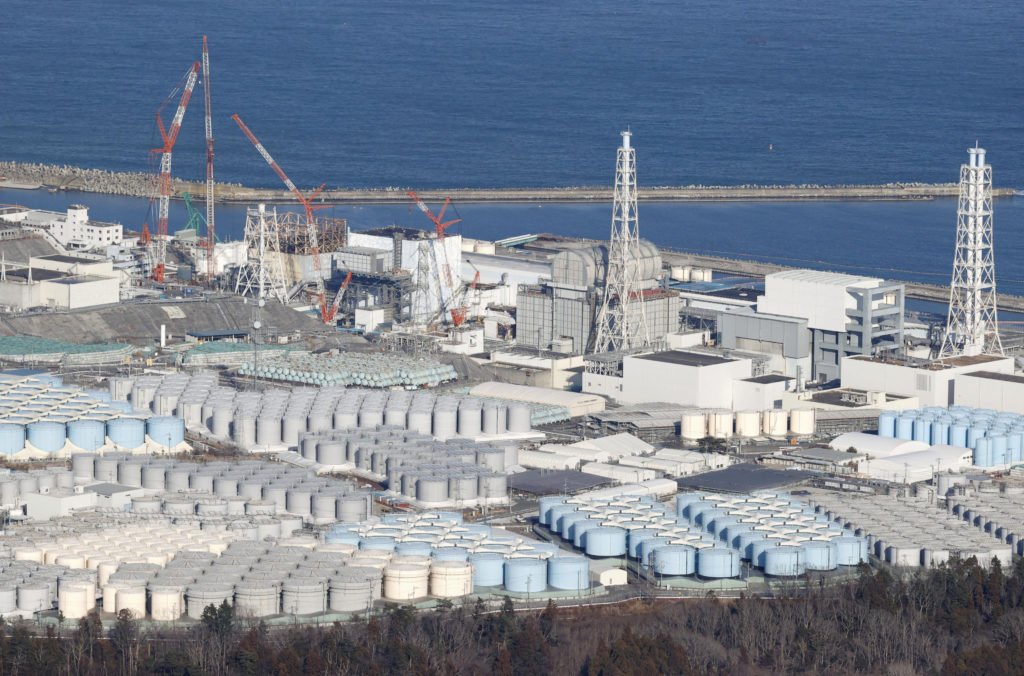Japan will start releasing treated radioactive water from the tsunami-damaged Fukushima nuclear station into the Pacific Ocean on Thursday, over objections from its neighbors.

Japan will start releasing treated radioactive water from the tsunami-damaged Fukushima nuclear station into the Pacific Ocean on Thursday, over objections from its neighbors.
The decision was taken a few weeks after the plan received approval from the UN’s nuclear watchdog.
1.34 million tonnes of water—enough to fill 500 Olympic-size swimming pools—have accumulated since the facility was destroyed by the tsunami in 2011. After more than 30 years, the water will be released after being filtered and diluted.
If the weather and sea conditions are suitable, authorities will ask the plant’s operator to “promptly prepare” for the disposal to begin on August 24, the Japanese Prime Minister Fumio Kishida said on Tuesday during a Cabinet meeting.
It was rumored that the release would happen soon after Mr. Kishida’s visit to the factory on Sunday.
The plant, which is located on the country’s east coast, some 220 kilometers (137 miles) north-east of the capital Tokyo, will need to be decommissioned, according to the government, and discharging the water is a vital first step in that process.
For more than ten years, Japan has been collecting and storing the tainted water in tanks, but there is now little room.
Three reactors of the Fukushima Daiichi Nuclear Power Plant were inundated in 2011 as a result of a tsunami brought on by a 9.0 magnitude earthquake. Since Chernobyl, the incident is recognized as the greatest nuclear accident in history.
Soon after, officials established an exclusion zone that grew as radiation escaped from the facility, forcing more than 150,000 residents to leave the region.
Since the Japanese government authorized the proposal to discharge water from the plant two years ago, it has raised concerns throughout Asia and the Pacific.
The UN’s nuclear watchdog approved it in July after officials determined the effects on people and the environment would be minimal.
However, a lot of people, notably the local fisherman, worry that releasing the treated water would have an impact on their way of life.
To urge the government to halt the publication, a group of demonstrators held a rally outside the prime minister’s official house in Tokyo on Tuesday.
Plant managers Tepco has been filtering the water to remove more than 60 radioactive compounds, but the water still contains tritium and carbon-14, which are radioactive isotopes of hydrogen and carbon that are difficult to remove from water. As a result, the water will not be completely radiation-free.
However, because to their extremely low radiation levels, specialists have said that they are not dangerous unless taken in significant amounts.
“As long as the discharge is carried out as planned, radiation doses to people will be vanishingly small – more than a thousand times less than doses we all get from natural radiation every year,” says Prof. Jim Smith, an environmental science instructor at the University of Portsmouth.
Experts also point out that the Pacific Ocean, a huge body of water, is being exposed to the contaminated water.
Therefore, everything emitted from the site will be greatly diluted, according to Imperial College London professor of molecular pathology Prof. Gerry Thomas.
Tokyo has previously said that the tritium and carbon 14 levels in the water that will be dumped into the Pacific Ocean, which has been mixed with saltwater, match safety regulations.
Tritium concentrations in waste water from nuclear power plants across the world are frequently higher than those in the Fukushima treated water.
However, the idea has sparked controversy among neighboring nations, with China being the most vociferous critic. Japan was charged of treating the ocean as its “private sewer.”
Tuesday, Wang Wenbin, a spokesman for the Chinese Foreign Ministry, repeated Beijing’s opposition and promised to take “necessary measures to safeguard the marine environment, food safety, and public health.”
With the release of waste water, Mr. Wang claimed that Japan is “putting its own self-interest over the long-term well-being of all humankind.”
Hong Kong said that it will “immediately activate” import restrictions on a number of Japanese food goods.
Fish imports from the area around Fukushima have already been prohibited by China and South Korea.
But the South Korean administration has approved the proposal and criticized the demonstrators for spreading false alarms.